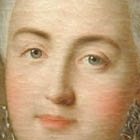History - Memories of Imperial Russia
Memories of Imperial Russia
by Gerald Hamilton
[Gerald Hamilton was born in the 1880s in Shanghai China, but was sent back to England for his schooling at the famous Rugby public school. An amazing character, whose life virtually encompasses everything we associate today with Western Europe of the first half of the 20th century. He was close friend to royalty, nobility, the famous and infamous; author, bon-vivant, and food and wine critic. His closest friends included Winston Churchill (who had Hamilton interned during World War II for his loudly anti-war sentiments), Christopher Isherwood (who used Hamilton as the model for Arthur Norris in his famous novel "Mr. Norris Changes Trains"), Jean Cocteau, Alfred Lord Douglas, Tallulah Bankhead, Guy Burgess, Benjamin Britten, and E.M. Forster, among many. He even met Anna Anderson, after which he was most certain she was not Grand Duchess Anastasia. This fascinating person is truly more like some character out of a Nancy Mitford novel, but in fact, he was most real. He passed away in 1970, just one year after this was published, at the age of 82.]
All the year 1912 was spent by me in Russia - a year of great happiness to me and one of the most agreeable of my life.
I went to St. Petersburg as my father's two sisters were brought up at the Court of Hesse-Darmstadt and were contemporaries of the Tsarina. My audience with the Imperial Family is still vivid in my mind. I received a notice from the Court Chamberlain to go to Tsarskoe Seloe, where the Court then was and where the Emperor would receive me in audience on a certain day and at a certain time. On the day appointed, one of the Court automobiles fetched me and a few hours later I found myself within the precincts of the palace, after passing innumerable sentries.
My first surprise was caused by the immense silence that reigned in this royal palace; although the whole of the Imperial Family was in residence, there seemed to be no bustle or any movement at all. There were sentries and Cossack attendants posted round the large hall; but no one came or went. After waiting about an hour in an ante room I was conducted to the Chamberlain's apartment and taken immediately by His Excellency to a large studio, or morning room, with two bow windows. A few moments later a small door in the wall opened and the Emperor, dressed in a very simple Russian costume with tall boots, came into the room and greeted me with a grave, frank courtesy, to which I found it easy to respond. He spoke perfect English and seemed to be positively glad to talk in that language, telling me that the Empress and himself very often used it when alone together.
I was struck by the extraordinary melancholy of his eyes, which every now and then dropped as he spoke. The impression he conveyed was rather that of a country gentleman than of a monarch. As I sat talking to him I thought he must, to some extent, resemble Charles I of England and Louis XVI of France. All three were monarchs whose blameless and indeed edifying private lives stand out in strange relief amidst surroundings of incredible corruption and profligacy. All three were noble in thought and weak in action. All three fell under the fatal, if well-meant, influence of wives who had utterly failed to appreciate the mentality of their enemies and the dangers which lay ahead.
After I had chatted with the Emperor for about ten minutes he sent to enquire if the Empress had returned from a drive in the palace grounds. Shortly after, a lady-in-waiting came to us and asked the Emperor to come with me to the Empress's apartments.
I found the Tsarina very gracious and still retaining a certain soft Germanic beauty, but much stouter than the photographs of her would have led one to suppose. She remembered my father's two sisters very well and gaily related incidents of her schooldays in Damrstadt. As tea was being served in large glasses after the Russian fashion, the door burst open and the Tsarevich romped into the room. He evidently expected to find his mother alone, and was very shy when he saw a strange visitor. A Scottish lady, his governess, and a tall Cossack accompanied him to the door and beckoned him back - but his mother told him to stay.
I have never seen a more timid child; though slightly built and boyishly dressed in a sailor suit, he looked far older than he really was. He had most extraordinarily gentle, almost beseeching eyes. After much hesitation and shyness on the part of the Tsarevich we finally became great friends, and he showed a lively interest in a little gold pencil-case which I carried; on being touched lightly at one end, out shot the pencil and, on being pressed a second time, the pencil withdrew into its shell. So delighted with the pencil was the boy that I laughingly asked the Empress to allow me to give it to him. The Empress hesitated a moment, but then thanked me and told her son to accept the pencil, which he did, making me a quaint little bow. I did not see any traces of ill-health on the Tsarevich's features, but he was certainly a most nervous timid lad.
The time came for me to return to St. Petersburg, and it was with genuine gratitude that I thanked the Emperor and Empress for their kindness in receiving me so informally. The scene I left engraved itself extraordinarily clearly on my mind, and I can still see quite distinctly today the Empress seated on a sofa with the Tsarevich beside her, his little arm round his mother's neck, the Grand Duchess Tatiana, a very beautiful girl, tall and slim and rather haughty, talking to the two ladies-in-waiting, as all three stood by the window; and the Tsar, also standing, lost it seemed, in a reverie as he looked after me with those strangely wistful eyes.
The Tsarevich suffered acutely from haemophilia and much controversy has been inspired by this illness and the influence that Rasputin gained over the Imperial Family thanks to the temporary cures which he was able to effect. I think we must, on that evidence, attribute Rasputin's influence to hypnotic powers, which he was able to exert even by telegram. Strange as this may seem, the solemn fact remains and cannot be gainsaid that not only did the Tsarevich's health always improve when Rasputin was near him, but that the Tsarevich actually depended upon Rasputin's ministrations to keep him alive. I cannot venture an explanation of how these alleviations of suffering were wrought, and Derevenko, physician in attendance on the Tsarevich - not the sailor of the same name mentioned later - was frankly dumbfounded at Rasputin's success.
Rasputin's peculiar powers of healing spread his fame as a wonder-worker. Whether these powers were miraculous, as was generally believed, or whether they derived from the peasant lore of a remote Siberia, we do not know, but in due course in Kazan he met the famous Bishop Michael and soon his name was heard even in St. Petersburg. He travelled there modestly at the invitation of a religious organization and made the acquaintance of Anna Alexandrovna Virubova, daughter of the Director of the Private Chancellery of His Majesty. Later I often met this lady, who was an intimate friend of the Tsarina and who succeeded in persuading her to allow Rasputin access to the afflicted Tsarvich.
At that time, about 1908, this Prince had a Russian nurse, but was watched over by the sailor Derevenko, to whom he was devoted, and who never let his Imperial charge out of his sight. I cannot trace any rivalry between Derevenko and Rasputin. The sailor was so anxious for an amelioration in his charge's health that he was not in the least jealousy when he found that, in very truth, Rasputin was able to affect an improvement.
It was the Countess Anna Virubova who was kind enough to take me to Rasputin's third-floor flat at 64 Gorokhovoy Street, in 1912. Rasputin held a kind of levee each morning and anybody who cared to call was made welcome. Unfortunately I did not speak Russian and could, therefore, do no more than just kiss his hand. Crowds of people were all around him. I saw rich ladies push bundles of notes into his hand; he never looked at the notes, but when he saw a poor supplicant merely handed on the money just as he had received it. He had no interest in money, though people asserted the contrary, since he had all he needed, as well as the protection and friendship of the entire Imperial Family.
My reason for wishing to see Rasputin was because at that time all St. Petersburg was talking about his power of healing and how the Tsarevich remained well, happy and healthy when Rasputin visited him daily.
Rasputin's power of healing was interesting and I had myself been present on a second occasion and was afforded the evidence of my own eyes. A mother called with her son who was epileptic and I saw him restore the child. What impressed me so much about his cure (which I was afterwards told was a permanent cure, not just relieving one epileptic fit) was that while he stroked the boy's head, muttering Russian prayers, breathing into his ears, mouth and nostrils, this huge, heavy peasant of a man seemed to become pale and even frail and when the boy was definitely cured (the whole affair lasted about ten minutes to a quarter of an hour) Rasputin sank back in a chair, utterly exhausted and almost helpless. It seemed indeed as if all the good had gone out of him. I considered it a great privilege to have seen undeniable proof of his extraordinary gift of healing. It may seem profane to mention Jesus Christ in any connection with Rasputin, but for all I know God may choose odd vessels to do his work.
The parrot cry against Rasputin that he was an unfrocked monk is utter nonsense since he had never taken Holy Orders, so could not have been an unfrocked monk. His immoral life had nothing to do with the powers of healing and prophecy which he undoubtedly possessed. The British like their heroes to be spotlessly white and their villains darkest black. They have tried to put Rasputin, who did so very much good in his lifetime, into the latter category. I shall always remember my two visits to him with gratitude and deep respect. He, for his part, did not care for English people at all and on my first visit he had received me somewhat cautiously, but the second time I was received with much greater enthusiasm, no doubt because the Countess Virubova had spoken favourably to him about me.
This was written by Gerald Hamilton. It is excerpted from the chapter "Memories of Imperial Russia" in his autobiographical book "The Way it Was With Me", Leslie Frewin publishers, London, 1969.
This information is for educational purposes only and is protected by copyright belonging to Gerald Hamilton, 1969 or his heirs. It may not be reproduced or used commercially for any purpose without prior written approval of the copyright holder.
Please send your comments on this page and the Time Machine to boba@pallasweb.com





 Imperial Bedroom
Imperial Bedroom Portrait Hall
Portrait Hall Mauve Room
Mauve Room Maple Room
Maple Room Aleksey's Bedroom
Aleksey's Bedroom Nicholas's Study
Nicholas's Study Aleksey's Playroom
Aleksey's Playroom Formal Reception
Formal Reception Balcony View
Balcony View Aleksey- Balcony
Aleksey- Balcony Children-Mauve
Children-Mauve Nicholas's Bathroom
Nicholas's Bathroom Alexandra- Mauve
Alexandra- Mauve Nicholas's Reception
Nicholas's Reception Tsarskoe Selo Map
Tsarskoe Selo Map